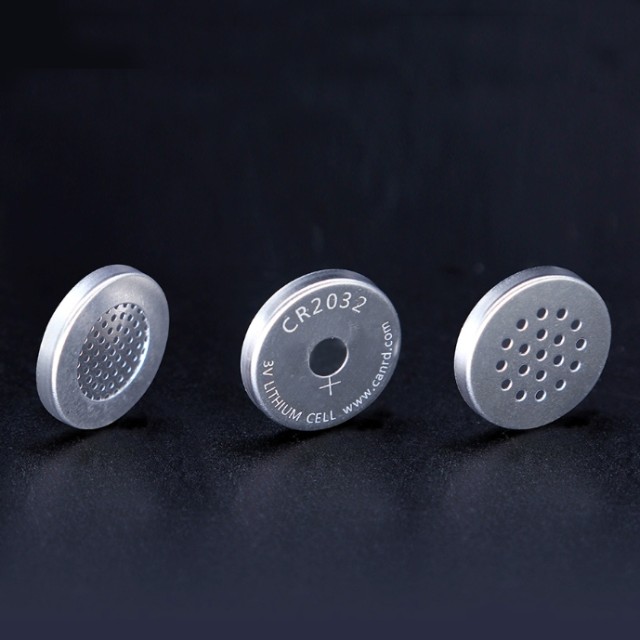
battery material
Li-Air Battery Case for Battery Lab Applications
Item Number : BC-04
Price varies based on specs and customizations
- Material
- 304 stainless steel
- Specification
- 17 holes / 19 holes
Shipping:
Contact us to get shipping details Enjoy On-time Dispatch Guarantee.
Why Choose Us
Easy ordering process, quality products, and dedicated support for your business success.
Introduction&Technical specifications
| Dimensions (Dia x Height) | 20mm x 3.2mm |
| Number of openings | 17 holes (if 19 holes are required, the hole diameter is 1.2mm) |
| Material | SS304;Bottom case with Ø12mm x 1.0mm thick mesh disc (Ø1mm holes on it) and top case with PP (Polypropylene) sealing O-ring |
| Weight | 0.1Oz (2.8 grams) |
| Application | Excellent for developing Zinc/Lithium-Air battery |
Detail & Parts
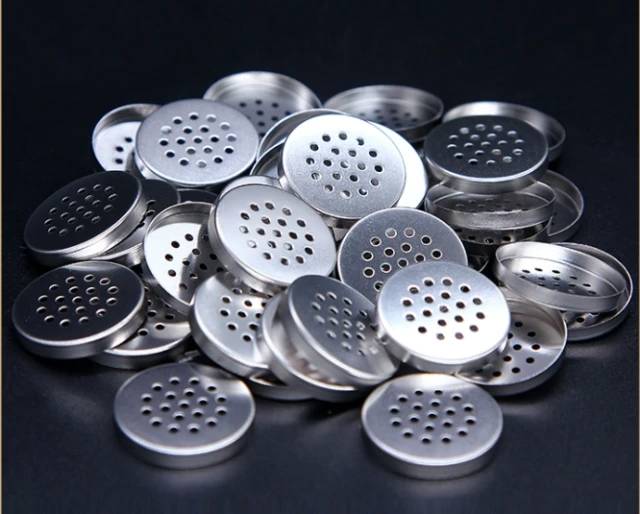
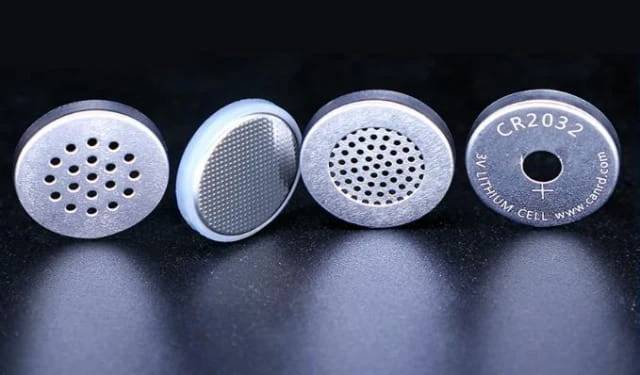
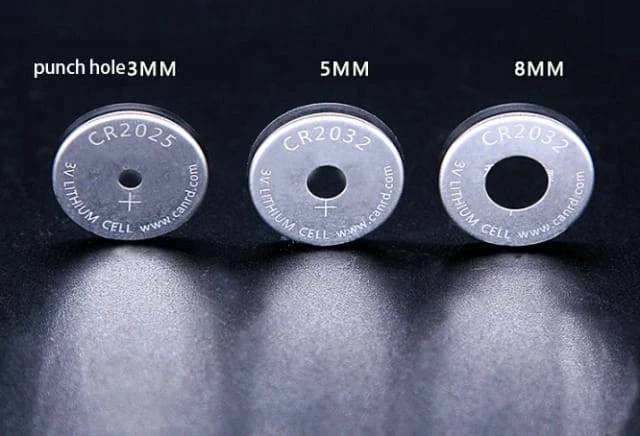

Mesh positive shell;Perforated positive shell;porous positive shell
Advantage
- Inhibit battery polarization, reduce thermal effects, and improve rate performance;
- Lithium-ion battery shell greatly reduces the internal resistance of the battery, and significantly reduces the dynamic internal resistance increase during the configuration process;
- Improve the uniformity and newly increase the configuration life of the battery;
- Lithium-ion battery shell improves the adhesion between active material and current collector, greatly reducing the manufacturing cost of tabs;
- Protect the current collector from being corroded by the electrolyte;
- Improve the high and low temperature performance of lithium-ion batteries, and improve the processing performance of lithium iron phosphate and lithium titanate materials.
Trusted by Industry Leaders

FAQ
What Considerations Should Be Made For Battery Case Gaskets?
What Is The Role Of Battery Case Gaskets?
What Are Lithium-air Battery Cases?
How Should Button Battery Cases Be Chosen For Specific Applications?
4.7 / 5
The Li-air battery case has been a game-changer for my research. It's durable and well-made, and it's helped me achieve better results in my experiments.
4.8 / 5
I was impressed with the quality of the Li-air battery case. It's made from high-quality materials and it's clear that a lot of thought went into its design.
4.9 / 5
The Li-air battery case is a great value for the price. It's affordable and it comes with all the necessary accessories.
4.6 / 5
The Li-air battery case is a great investment for any lab. It's durable, reliable, and easy to use.
4.7 / 5
The Li-air battery case is a must-have for any lab that works with lithium-ion batteries.
4.8 / 5
The Li-air battery case is a great addition to my lab. It's well-made and it's helped me improve the performance of my lithium-ion batteries.
4.9 / 5
The Li-air battery case is a great product. It's easy to use and it's helped me save time and money.
4.6 / 5
The Li-air battery case is a great value for the price. It's affordable and it comes with all the necessary accessories.
4.7 / 5
The Li-air battery case is a great investment for any lab. It's durable, reliable, and easy to use.
4.8 / 5
The Li-air battery case is a must-have for any lab that works with lithium-ion batteries.
4.9 / 5
The Li-air battery case is a great addition to my lab. It's well-made and it's helped me improve the performance of my lithium-ion batteries.
4.6 / 5
The Li-air battery case is a great value for the price. It's affordable and it comes with all the necessary accessories.
4.7 / 5
The Li-air battery case is a great investment for any lab. It's durable, reliable, and easy to use.
4.8 / 5
The Li-air battery case is a must-have for any lab that works with lithium-ion batteries.
4.9 / 5
The Li-air battery case is a great addition to my lab. It's well-made and it's helped me improve the performance of my lithium-ion batteries.
4.6 / 5
The Li-air battery case is a great value for the price. It's affordable and it comes with all the necessary accessories.
4.7 / 5
The Li-air battery case is a great investment for any lab. It's durable, reliable, and easy to use.
REQUEST A QUOTE
Our professional team will reply to you within one business day. Please feel free to contact us!
Related Products
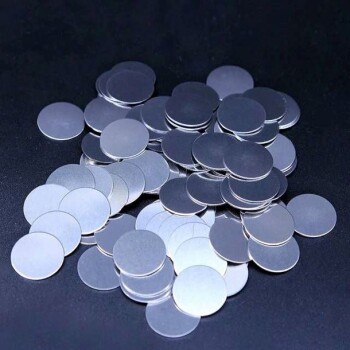
Button Battery Case Gasket for Battery Lab Applications
The gasket prevents the deformation of the internal material, and the spring sheet is conducive to the tight contact inside the battery to prevent loosening.
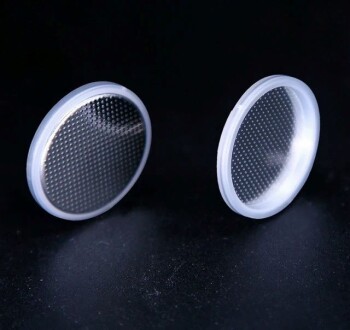
Button Battery Case for Battery Lab Applications
Button batteries are also known as micro batteries. It looks like a small button-shaped battery. Usually larger in diameter and thinner in thickness.
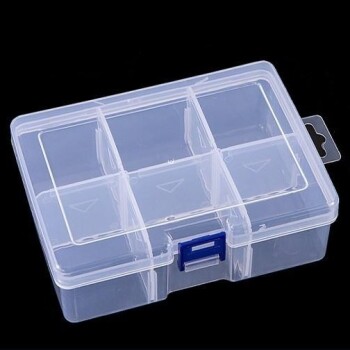
Button Battery Storage Box for Battery Lab
Button-type battery storage box, detachable, high-quality PP environmental protection material; suitable for small objects/chemicals, etc., thickened, compressive, durable, and available in a variety of styles.
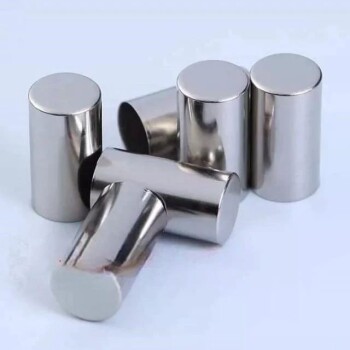
Cylindrical Battery Steel Case for Battery Lab
Lithium-ion battery casing suppresses battery polarization, reduces thermal effects, and improves rate performance.
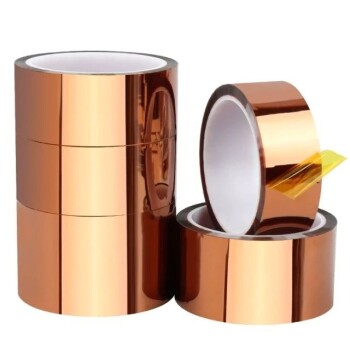
Lithium Battery Tab Tape for Battery Lab Applications
PI polyimide tape, generally brown, also known as gold finger tape, high temperature resistance 280 ℃, to prevent the influence of heat sealing of soft pack battery lug glue, suitable for soft pack battery tab position glue.
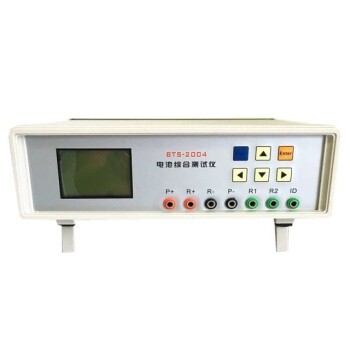
Battery Lab Equipment Battery Capacity and Comprehensive Tester
The scope of application of the battery comprehensive tester can be tested: 18650 and other cylindrical, square lithium batteries, polymer batteries, nickel-cadmium batteries, nickel-metal hydride batteries, lead-acid batteries, etc.
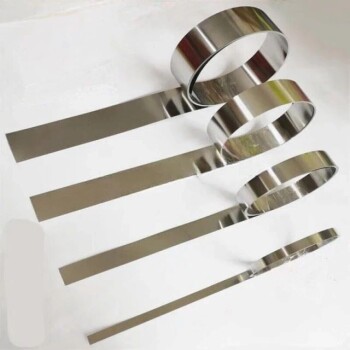
Battery Lab Equipment 304 Stainless Steel Strip Foil 20um Thick for Battery Test
304 is a versatile stainless steel, which is widely used in the production of equipment and parts that require good overall performance (corrosion resistance and formability).

Platinum Sheet Electrode for Battery Lab Applications
Platinum sheet is composed of platinum, which is also one of the refractory metals. It is soft and can be forged, rolled and drawn into rod, wire, plate, tube and wire.

High Purity Zinc Foil for Battery Lab Applications
There are very few harmful impurities in the chemical composition of zinc foil, and the surface of the product is straight and smooth; it has good comprehensive properties, processability, electroplating colorability, oxidation resistance and corrosion resistance, etc.
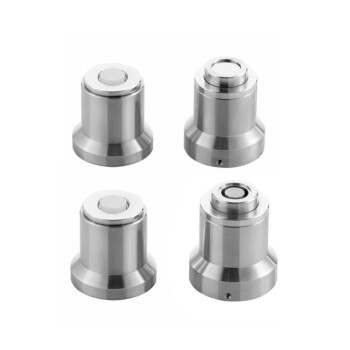
Button Battery Disassembly and Sealing Mold for Lab Use
The simple sealing and disassembly mold can be directly used on ordinary tablet presses, which can save costs, is convenient and fast, and can be used to encapsulate and disassemble button batteries. Other specifications can be customized.
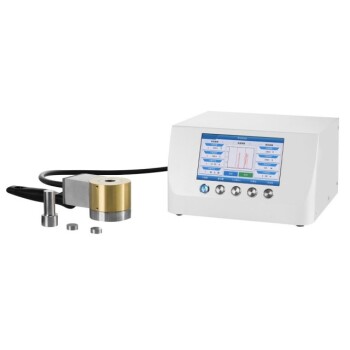
Cylindrical Lab Electric Heating Press Mold for Laboratory Applications
Efficiently prepare samples with Cylindrical Lab Electric Heating Press Mold. Fast heating, high temp & easy operation. Custom sizes available. Perfect for battery, ceramic & biochemical research.
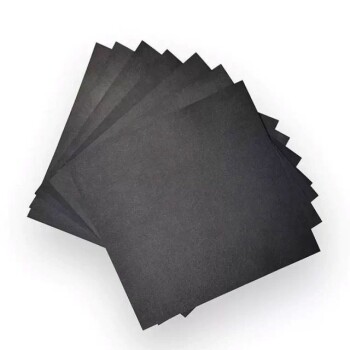
Hydrophilic Carbon Paper TGPH060 for Battery Lab Applications
Toray carbon paper is a porous C/C composite material product (composite material of carbon fiber and carbon) that has undergone high-temperature heat treatment.
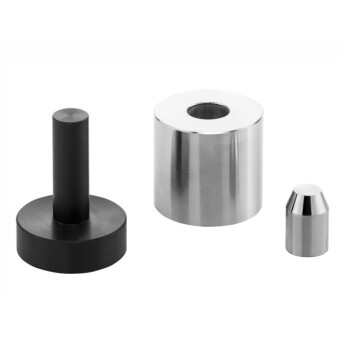
Button Battery Tablet Press Sealing Mold for Lab Use
The sealing die is essential for assembling button batteries, ensuring components like the anode, cathode, and electrolyte are securely enclosed.
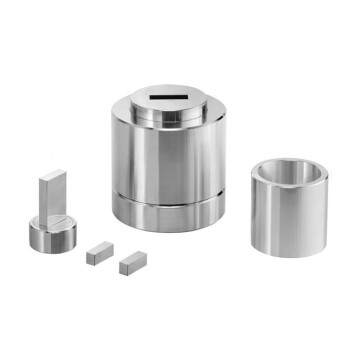
Assemble Square Lab Press Mold for Laboratory Applications
Achieve perfect sample preparation with Assemble Square Lab Press Mold. Quick disassembly eliminates sample deformation. Perfect for battery, cement, ceramics, and more. Customizable sizes available.
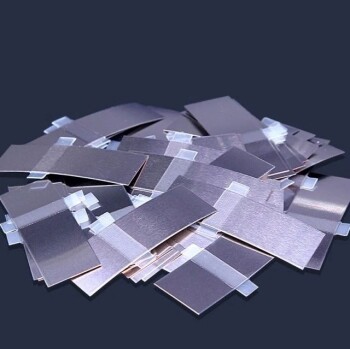
Nickel Aluminum Tabs for Soft Pack Lithium Batteries
Nickel tabs are used to manufacture cylindrical and pouch batteries, and positive aluminum and negative nickel are used to produce lithium-ion and nickel batteries.
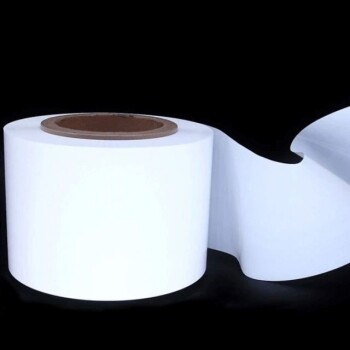
Polyethylene Separator for Lithium Battery
The polyethylene separator is a key component of lithium-ion batteries, located between the positive and negative electrodes. They allow the passage of lithium ions while inhibiting electron transport. The performance of the separator affects the capacity, cycle and safety of the battery.

Laboratory Hydraulic Press Lab Pellet Press for Button Battery
Efficiently prepare samples with our 2T Button Battery Press. Ideal for material research labs and small-scale production. Small footprint, lightweight, and vacuum-compatible.
Related Articles

Design Principle and Application of Reference Electrodes for Lithium Batteries
Discusses the design principles, types, applications, and future directions of reference electrodes in lithium batteries.

Design and Application of Reference Electrodes in Lithium Batteries
This article discusses the selection and design of reference electrodes for lithium batteries, focusing on active materials like lithium metal, lithium alloys, and lithium-embedded oxides.

Carbon Coating for Surface Modification of Silicon-Based Materials in Lithium-Ion Batteries
This article discusses the application of carbon coatings to improve the performance of silicon-based anode materials in lithium-ion batteries.